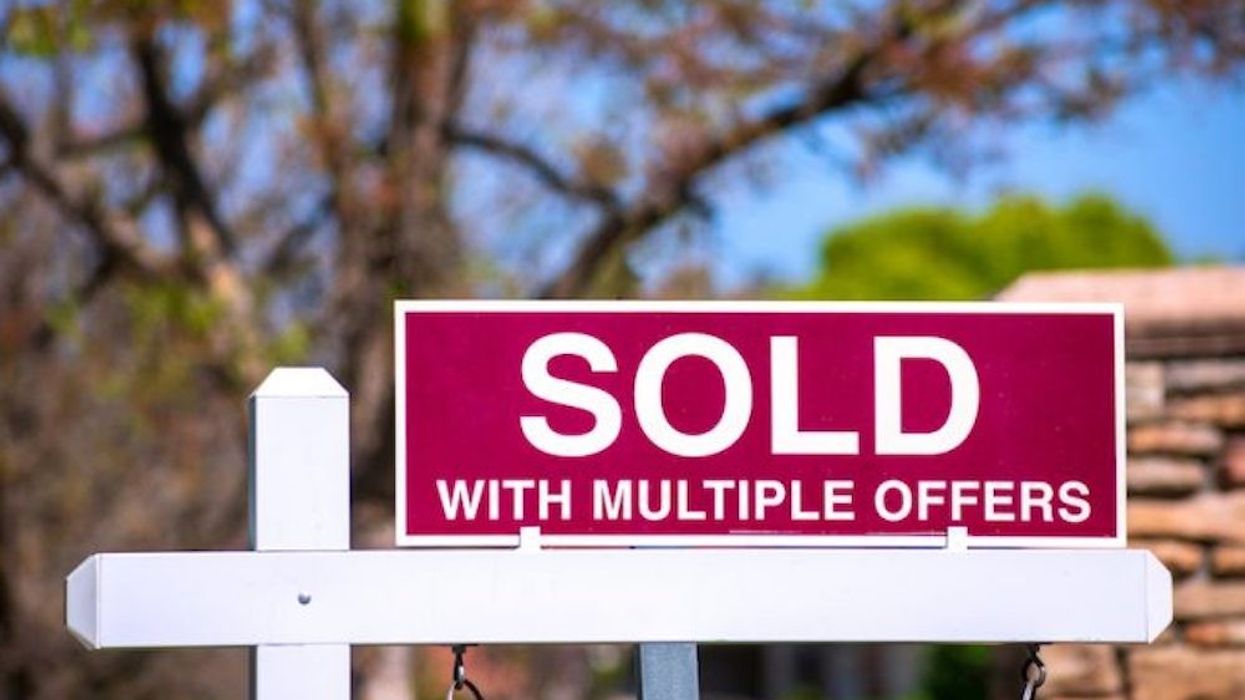Nothing is more archetypal of the current Toronto housing market than multiple aspiring buyers one-upping each other in an attempt to snag a listed home. But, as it turns out, having the highest offer doesn't necessarily mean you'll be the one walking away with the deed.
Toronto realtor Saul Sanchez experienced this first-hand when trying to land a condo for one of his clients. Earlier this month, a listing for a studio in Toronto's Fort York neighbourhood came online around 11 pm one night. With the condo falling within his client's tight $460,000 budget, Sanchez immediately booked a viewing for bright and early the next morning.
"We saw it and within two hours, we submitted a preemptive offer," Sanchez said, noting that their offer was for $440,000. "The sellers were out of town so we had no choice but to give them 24 hours to review, but in that time, there were other people that saw the unit, so the following day, when our offer was actually going to be due, there was another offer on the table."
After learning about the other bid, Sanchez's client upped her offer to her full budget of $460,000 -- an amount higher than was submitted by the other buyer, who, according to the listing agent, was not interested in going any higher.
"I talked to my buyer and because there's such limited inventory for her specific budget, she was willing to just max it out on this to get it over with because we already went on so many showings and we probably put in like 11 offers together," Sanchez said. "I thought that was good enough because the listing agent said 'Okay, that's fine.'"
But not too much later, he received another phone call from the listing agent. This time asking how much of a down payment his client was planning to pay.
"The seller was a little bit afraid that the unit wouldn't appraise," Sanchez said.
In Canada, buyers can put as little as 5% down on purchases below $500,000, with the caveat that any mortgage borrowers who put down less than 20% are required to obtain mortgage insurance from CMHC. As part of the lending process, the home's value is appraised by looking at comparable sales in the area to determine whether the home is actually worth that amount of money. If an appraisal comes in lower than the winning offer, the lender will only give a mortgage based on the lower appraised value and the buyer is required to pay upfront the difference between the purchase price and the appraised value.
READ: In a Red Hot Real Estate Market, Are Lenders Being Cautious Enough?
Although Sanchez assured the listing agent that his client had additional funds to cover the difference in price if that turned out to be the case, their offer was rejected.
"It turns out that the seller just wanted to go with another buyer that had a higher down payment -- they had more confidence in that buyer being able to close in the event that the unit didn't appraise for the purchase price," Sanchez said. "By the way, it would have appraised. Everything is appraising in this market. There are other sales in the area that would have supported the price, so we wouldn't have had any problem regardless. I think the seller was just a little bit more risk averse."
Toronto-based mortgage broker and author of Burn Your Mortgage, Sean Cooper says that he has also largely found that to be the case in the current market -- homes that are selling aren't surpassing their appraised value.
"I would say that most are appraising for the sale price," Cooper said. "I mean, you can't just pay anything and expect it to appraise, but as long as it's reasonable then I'm finding it does. It's only happened to one client this year where the appraisal did come under, but besides that it hasn't happened for any of my other clients."
Although Sanchez's client sadly lost out on the Fort York unit, a similar situation worked out in another of his client's favour last year when they won out on a condo despite having a lower bid.
"I think we paid $670,000 for the condo but she paid a $100,000 deposit and the seller really like that," Sanchez said. "We were $5,000 below the highest offer but I think that's a good measure in terms of looking at it as like the seller is willing to net a $5K loss in order to have a higher quality buyer in that respect."
"The majority of time the highest offers gonna win, but depending on the seller and their motivation, that can change. Sometimes it could also be the closing date, like the seller needs to move on a very specific date, and if the highest offer's not wanting to close on that day, they might go with someone else who is matching up that date. So it could be different things like that."
Cooper said that he has also seen this scenario play out, where secondary factors have won out over the price, especially when a buyer needs to sell within a specific timeframe.
"You have to think about it from the sellers perspective," Cooper said. "Even if somebody offered me $5,000 more, if one of the offers is a firm offer versus a conditional offer -- conditional home inspection, financing, you could even include condition of your property selling -- that really seems like a less attractive offer."





















